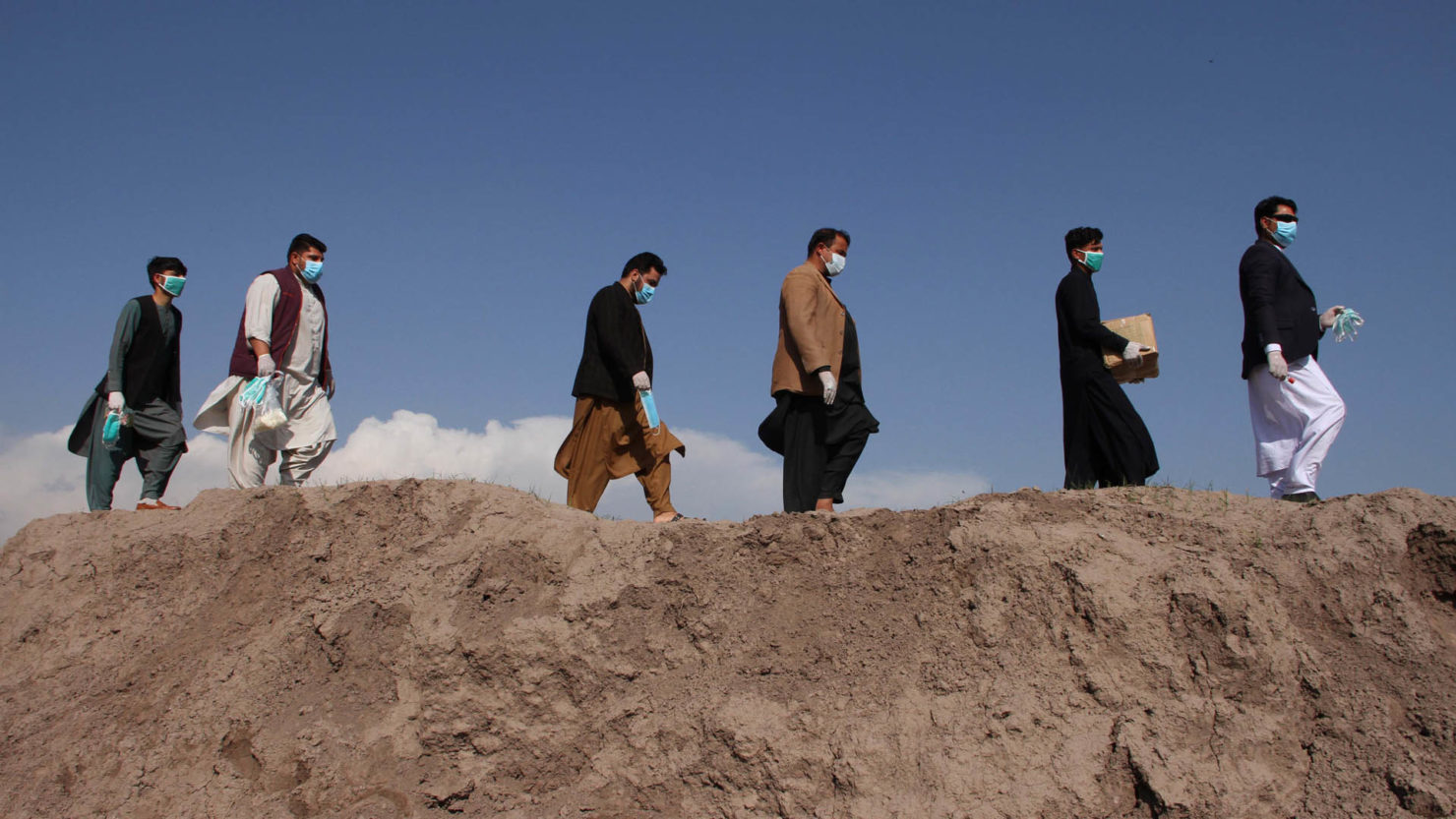ON MARCH 13, 50-year-old Sayeed Karim attended Friday prayers at his mosque in Mangalha, a remote village in Baghlan Province in northern Afghanistan. While there, he and his neighbors were presented with a unique public information session issued by local Taliban groups. “They talked about the coronavirus,” said Karim in a phone interview with Undark.
According to Karim, who is a village elder, the Taliban rebels informed worshipers that the thousands of Afghan refugees recently returned from Iran must remain in their homes until they can be tested for SARS-CoV-2. Since the 1980s, an estimated 2 million undocumented Afghan refugees have sought asylum in Iran, in an effort to escape violence and economic insecurity in their own country. And for years, Iran has been sending these migrants back to Afghanistan at a rate of roughly a thousand people per day. But as Covid-19 cases have surged in Iran, the number of returnees spiked dramatically. Iran continues its deportations, while many Afghans are now returning to their homeland voluntarily. Afghanistan’s earliest confirmed Covid-19 cases predominantly occurred among returnees, raising fears that the virus will now spread throughout Afghanistan, a country with more than 35 million people.
Governments around the world are struggling to combat the pandemic, but a nation like Afghanistan faces particular challenges because its public health infrastructure is already suffering the effects of war, displacement, and poverty. That’s why the Taliban insurgents fighting the government have gotten involved — conducting awareness meetings like the one at Karim’s mosque, providing supplies, and even offering secure passage to humanitarian organizations and health workers seeking to provide aid to those living under Taliban control. However, Afghan government officials say these efforts will not have the intended effect as long as the Taliban continues to mount attacks on government forces.
“Taliban has offered their assistance, and we do appreciate that,” Wahidullah Mayar, senior adviser and spokesperson for Afghanistan’s health ministry, told Undark. “But insecurity has been our biggest challenge,” he said. “We cannot provide adequate health care services in insecure areas.” And yet the situation is not much better in cities and regions under government control.
As of today, there were a total of 239 confirmed cases of Covid-19 in Afghanistan and five confirmed deaths. But these low numbers may simply reflect a lack of widespread testing, said Nicholas Bishop, emergency response officer at the International Organization for Migration mission in Afghanistan. Until recently, tests could only be performed in the Afghan capital of Kabul, and even there, authorities had just a few hundred testing kits. There is also a general reluctance to be tested due to the lack of awareness surrounding symptoms, self-reporting, and quarantine, Bishop explained.
Read full story on Undark
